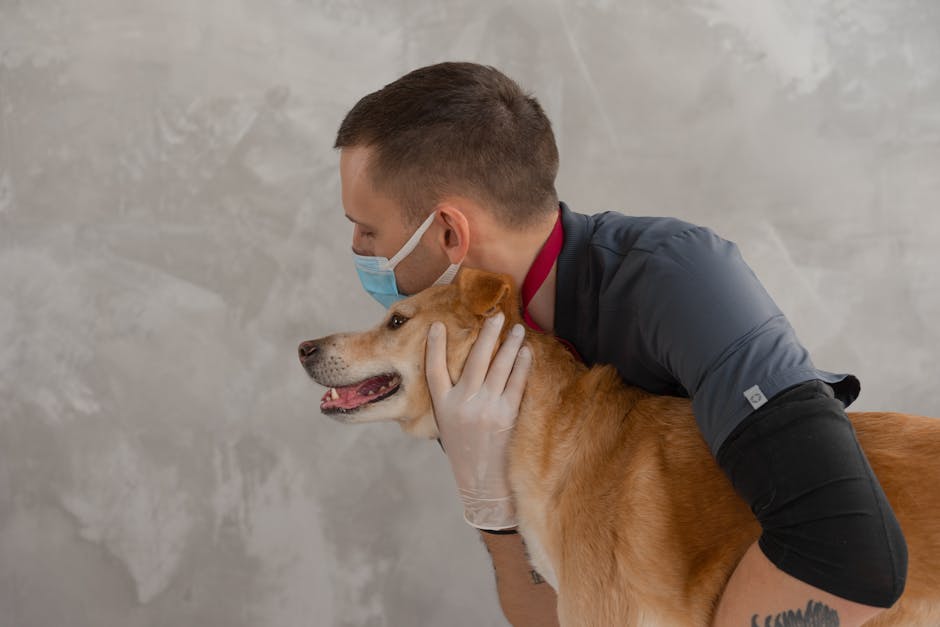A cornerstone of pet health is a robust vaccination schedule. Vaccinations protect against infectious diseases, many of which can be severe or even fatal. The specific vaccines needed vary by your pet’s breed, lifestyle, and geographical location, necessitating consultation with your veterinarian. Core vaccines like rabies and distemper are essential in most regions. Booster shots, based on your vet’s recommendations, are critical to maintaining immunity levels over time. Beyond core vaccines, your veterinarian can advise on additional vaccinations tailored to potential exposures in your pet’s environment. For example, a dog living in a high-risk area for leptospirosis might require a specific vaccination for this bacterial disease. It’s important to remember that the efficacy of vaccines relies on consistent adherence to the recommended schedule.
A crucial strategy is regular veterinary checkups. These periodic examinations allow your vet to monitor your pet’s overall health and detect potential problems early. Physical exams help identify subtle issues like weight changes, dental problems, or skin abnormalities. Early diagnosis often means more effective and less aggressive treatment. Proactive health screenings are also recommended for specific breeds predisposed to certain genetic conditions. These can include blood tests or other imaging procedures, helping identify conditions like hip dysplasia in dogs or various eye disorders in cats. These early interventions often can greatly improve the quality of life.
Nutrition plays a significant role in a pet’s well-being. A carefully curated diet tailored to your pet’s age, size, breed, and activity level is fundamental. Maintaining a healthy weight is crucial, as obesity can lead to various health issues, including joint problems, diabetes, and heart disease. Consult your veterinarian for guidance on appropriate portion sizes and types of food. A diet rich in essential nutrients, including proteins, carbohydrates, and fats, is paramount for growth, energy production, and immune function. Beware of potentially harmful ingredients and ensure food is stored appropriately to prevent spoilage.
Parasite prevention is another significant aspect of pet care. Fleas, ticks, heartworms, and internal parasites are common issues that can severely impact a pet’s health. Preventive measures are readily available, including monthly topical treatments, oral medications, and regular fecal examinations. Understanding the prevalence of parasites in your region and your pet’s environment is critical when choosing the right prevention strategy. A proactive approach using these parasite prevention measures safeguards your pet from discomfort, anemia, and the transmission of diseases.
Dental care is often overlooked but is essential. Dental problems in pets are common and can cause pain, infection, and systemic health issues. Regular brushing with pet-specific toothpaste and dental chews can help maintain oral hygiene. Professional dental cleanings under anesthesia are often necessary to remove tartar buildup and address underlying issues. Regular dental checkups are part of this essential preventative care.
Mental well-being is as important as physical well-being. Playtime, social interaction, and mental stimulation are crucial for a happy and healthy pet. Activities like puzzle toys, interactive games, and social interaction with other dogs or cats can help prevent boredom, anxiety, and behavioral problems. A bored or stressed pet can exhibit undesirable habits, potentially highlighting underlying health conditions.
Outdoor safety is a crucial component of preventative care. Proper identification, microchipping, and ensuring your pet wears a collar with identification tags are essential. Safety concerns include vehicular accidents, exposure to hazardous substances, or becoming lost. If your pet spends time outdoors, appropriate protective gear might be necessary, especially during extreme weather conditions.
Properly handling injuries and responding to potential emergencies is vital. Knowing basic first aid procedures and having a plan for addressing injuries can prevent problems from escalating. Emergencies can arise suddenly, and preparation can significantly improve outcomes. Being prepared to address minor issues like cuts or sprains is important as is knowing how and when to seek immediate veterinary attention.
Finally, regular monitoring and keeping detailed records of your pet’s health are crucial. Documentation includes vaccinations, treatments, any observed changes in behavior, and general health updates. This detailed record is extremely valuable if your pet develops health problems or needs to see a different veterinarian. Tracking these records not only assists with the medical management of your pet but also provides vital information when your pet ages, ensuring the most informed and appropriate treatment decisions.
In conclusion, comprehensive preventative health measures are vital for pets. Proactive steps including vaccination schedules, regular check-ups, nutritional considerations, parasite control, dental care, and mental stimulation can substantially contribute to your pet’s longevity, happiness, and well-being. By adopting these strategies, pet owners can significantly improve their animal companions’ quality of life and ensure they enjoy a long, healthy, and fulfilling existence.
